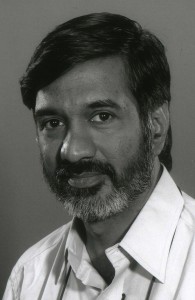Manager, Hero and Leader
Raghu Ananthanarayanan
India is going through a remarkable transformation. It is racing towards becoming a leader on the world stage. In doing that it is leapfrogging over many stages of growth that the west has been through. The IT and Telecom Industries vie with the best in the world, its infrastructure groans and often gives up. Its Engineering Industries are becoming vendors to the world but lack world-class innovation. Its educational base is very large but not cutting edge, it struggles to shake off the colonial legacy.
Leader Development in this context takes on many dimensions. One of the areas we in TAO have focused on is in looking at the self-image of the aspiring leader and offering her/him a set of practices that will result in a change that is ‘inside out’. Orange tools and techniques are of no use when the energy is stuck in Blue and Purple metaphors of self!
We ask the coachee to write down his/her definition of a manager, a hero and a leader. Often ‘the manager’ represents the blue aspects of the person, ‘the hero’ is painted in red. Some people paint the leader in orange, others in an orange green combination. We have found a few who go into second tier definitions.
We then offer a frame through which the coachee works at bringing forth an authentic way to be true to their definitions. Before a critical event the person prepares by asking three questions: Where am I? Why am I here? Who am I? The coachee is encouraged to take a meditative journey through the event while keeping these questions alive.
After the event is over, the coachee looks back at the event “as though watching a film” and asks himself or herself if they were able to play the right role, i.e., the manager, the hero or the leader, appropriately and authentically. The coachee is encouraged to revisit the definitions after a couple of months.
It has been fascinating to see the transformation the coachees make when they are able to trust their own ability to define the roles and reflect on them. Sooner than later, many of them fall back on the ‘Bhagavad-Gita’ or their own favorite spiritual guide to find the definitions that make sense to them. The freedom to define these roles for themselves is often a liberating experience. This legitimization of their own wisdom as opposed to being given ‘world-class bench marks’ and frees them of inner conflict and judgment. The moment the coachee says to himself/ herself “I will be the best I can be on my terms” and decides that authenticity works for him/her, learning and development take on a very different quality.

